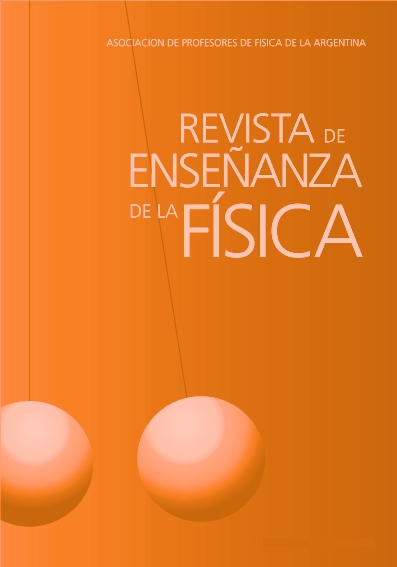The benefits of listening to student’s ideas to re-plan teaching
DOI:
https://doi.org/10.55767/2451.6007.v28.n1.14687Keywords:
Magnetism, Teaching practice, Re-planning, Listening to studentsAbstract
Often we, as high-school teachers (and even as pre-service teachers) fail to acknowledge the great importance of listening to our student’s ideas. Sometimes their unexpected questions put us in uncomfortable situations because we believe that answers like “I will get back to you with that question next class” can undermine our authority. Other times, we know that attending to certain questions can demand more time than expected, and this could keep us from covering the syllabus. Sometimes we even disregard students´ questions simply because we are not paying enough attention, or we are not accustomed to listening to them. In this paper, we describe a part of our experience during our professional practice to become teachers. We show examples in which listening to students in order to plan or re-design our teaching strategies tuned with their interests helped us to achieve our teaching goals. Perhaps it is a good time to start exercising the difficult art of listening.References
Giannone, M. L. (2016). Introducción al magnetismo y sus aplicaciones (Trabajo final de Metodología y Práctica de la Enseñanza). Disponible en:
http://www2.famaf.unc.edu.ar/institucional/biblioteca/trabajos/6287/17637.pdf
Gvirtz, S. y Palamidessi, M. (2012). El ABC de la tarea docente: Currículum y Enseñanza. Terceraedición. Buenos Aires: Aique.
Raviolo, S. (2016). Magnetismo (Trabajo final de Metodología y Práctica de la Enseñanza). Disponible en: http://www2.famaf.unc.edu.ar/institucional/biblioteca/trabajos/6287/17389.pdf
Stein, M., Engle, R., Smith, M. y Hughes, E. (2008). Orchestrating Productive Mathematical Discussions: Five Practices for Helping Teachers Move Beyond Show and Tell. Mathematical Thinking and Learning, 10(4), 313-340.
Downloads
Published
Issue
Section
License
Copyright (c) 2016 María Laura Giannone, Sofía Raviolo

This work is licensed under a Creative Commons Attribution-NonCommercial-NoDerivatives 4.0 International License.
Aquellos autores/as que tengan publicaciones con esta revista, aceptan los términos siguientes:Los autores/as conservarán sus derechos de copiar y redistribuir el material, bajo los términos estipulados en la Licencia de reconocimiento, no comercial, sin obras derivadas de Creative Commons que permite a terceros compartir la obra bajo las siguientes condiciones:
- Reconocimiento — Debe reconocer adecuadamente la autoría, proporcionar un enlace a la licencia e indicar si se han realizado cambios. Puede hacerlo de cualquier manera razonable, pero no de una manera que sugiera que tiene el apoyo del licenciador o lo recibe por el uso que hace.
- NoComercial — No puede utilizar el material para una finalidad comercial.
- SinObraDerivada — Si remezcla, transforma o crea a partir del material, no puede difundir el material modificado.
- Los autores/as podrán adoptar otros acuerdos de licencia no exclusiva de distribución de la versión de la obra publicada (p. ej.: depositarla en un archivo telemático institucional o publicarla en un volumen monográfico) siempre que se indique la publicación inicial en esta revista.
- Se permite y recomienda a los autores/as difundir su obra a través de Internet (p. ej.: en archivos telemáticos institucionales o en su página web) antes y durante el proceso de envío, lo cual puede producir intercambios interesantes y aumentar las citas de la obra publicada. (Véase El efecto del acceso abierto).










